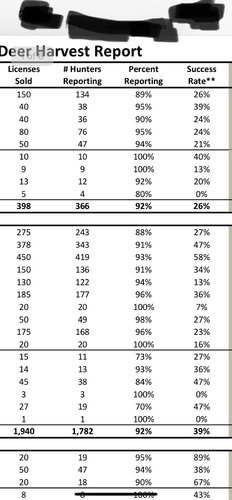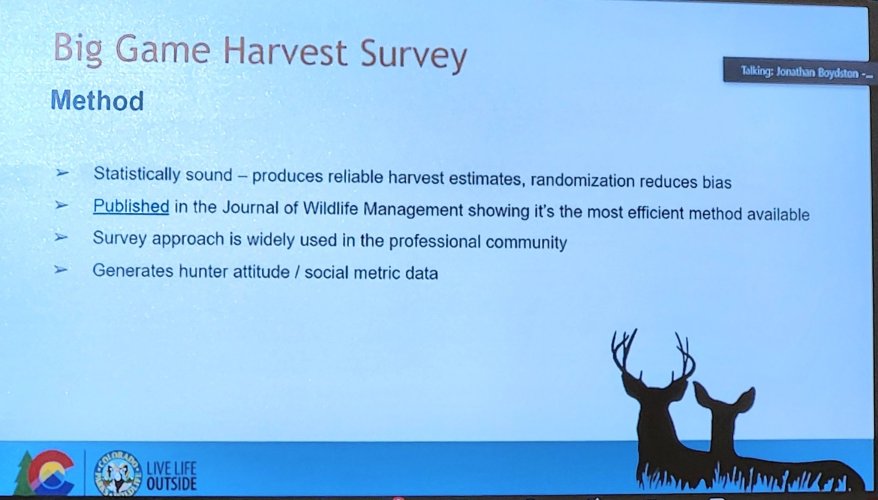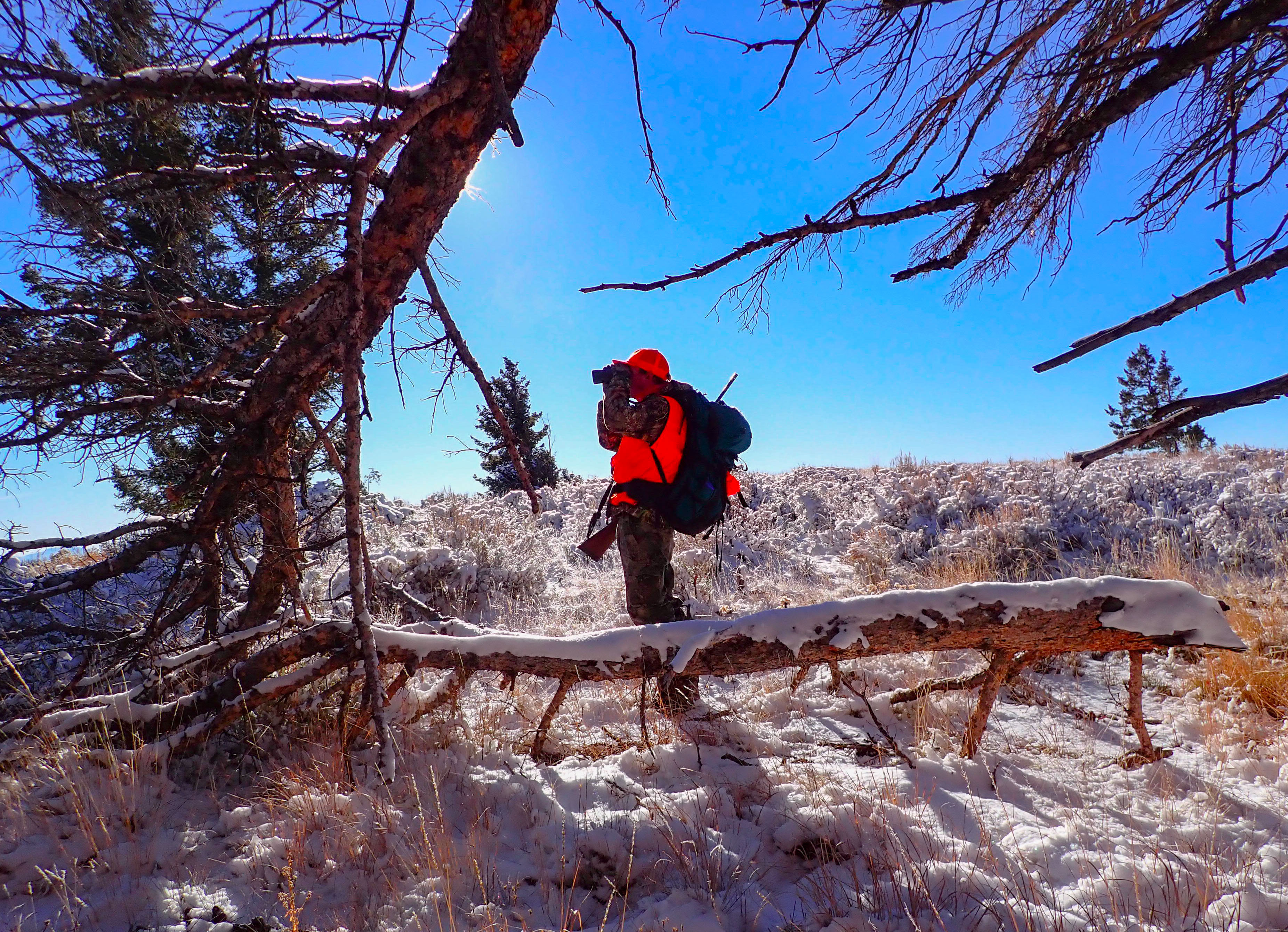El Jason
Well-known member
Yeah, truthfulness in reporting is always a question. I was hunting with some friends once who told me they deliberately falsified their harvest reports because they were worried the elk season structure would be changed.At least you have some penalty for non reporting.
I’ve talked to people that intentionally give false reports where I am. Reasonings all over the board; from if I report something small vs big less people might hunt here next year, report you harvested something big so people looking at data think you’re more successful than you really are, report no harvest so state won’t reduce opportunity in the future. Without something to make sure people are honest and do them I find reporting fairly useless








